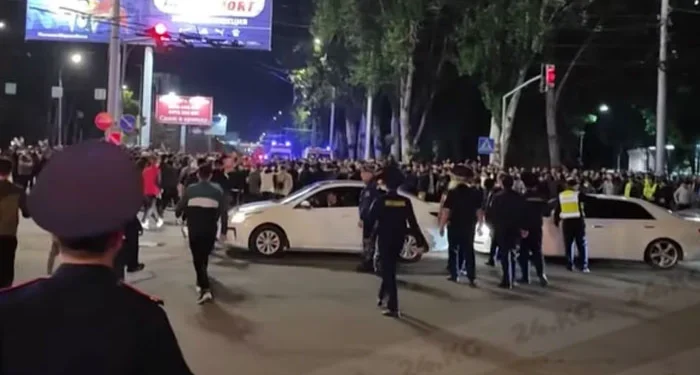In Bishkek, Kyrgyzstan, more than 300 Pakistani students have returned home following violent attacks targeting their hostels. These attacks occurred on May 17 and resulted in injuries to several students. The violence erupted late at night, lasting over six hours, with hundreds of Kyrgyz locals attacking the hostels where international students, including those from Pakistan, India, Egypt, and Bangladesh, were staying. The violence injured more than 30 individuals.
Initial Response and Safety Measures
Upon learning about the threat, hostel administrations advised students to stay indoors. Despite police presence, the mob, which numbered over 700 people, managed to break into the hostel, causing significant vandalism and spreading fear among the residents. Videos on social media showed the mob throwing stones and breaking doors and windows.
Government and Diplomatic Reactions
Pakistan’s Foreign Minister, Ishaq Dar, held a press conference assuring that Kyrgyz authorities had brought the situation under control. He confirmed that four or five Pakistani students were injured but denied any fatalities. The Pakistani government arranged for flights to bring back students, though many students reported paying for their own tickets.
Indian authorities similarly advised their students to stay indoors, with Indian Foreign Minister S. Jaishankar monitoring the situation closely. Both governments remained in contact with their respective student communities to provide support.
Background and Trigger for the Attack
The violence was reportedly triggered by a brawl between Kyrgyz locals and international students on May 13. Tensions simmered, culminating in the mob attack on May 17. The Kyrgyz government subsequently arrested those involved in the violence and claimed the situation had returned to normal by May 18.
Current Situation and Future Actions
Students, while reporting a return to relative calm in Bishkek, expressed plans to return home due to safety concerns. Kyrgyz authorities allowed foreign students to attend classes online for a week to ease the situation. Many students, including Korish Malik and Hassan Aryani, have decided to leave Kyrgyzstan, with their colleges accommodating remote learning.
Economic and Educational Context
Kyrgyzstan is a popular destination for Pakistani and Indian medical students due to its relatively high educational standards and affordable tuition fees. Over 11,000 Pakistani and 15,000 Indian students are enrolled in Kyrgyz medical colleges, which also attract students from Arab and African countries. However, the recent attacks and the devaluation of the Pakistani rupee have raised concerns about the feasibility of continuing education there.
Conclusion
The attacks on Pakistani students in Bishkek highlight the vulnerabilities faced by international students in foreign countries. While the immediate threat has been addressed, long-term measures are needed to ensure the safety and well-being of these students. Both the Pakistani and Kyrgyz governments must work together to prevent such incidents in the future and reassure the student community and their families of their security.
















